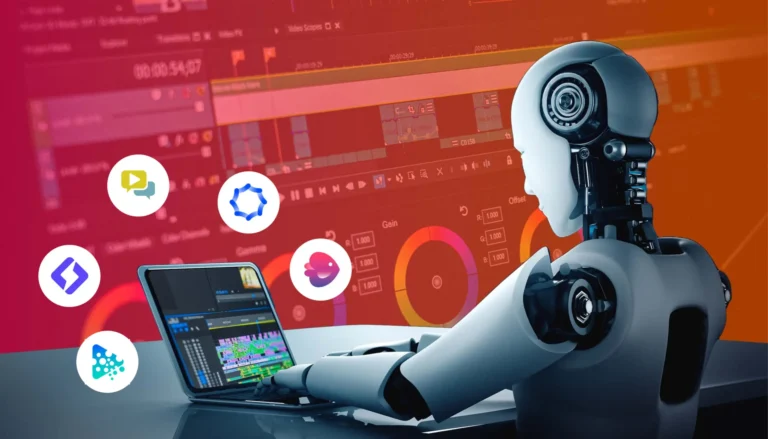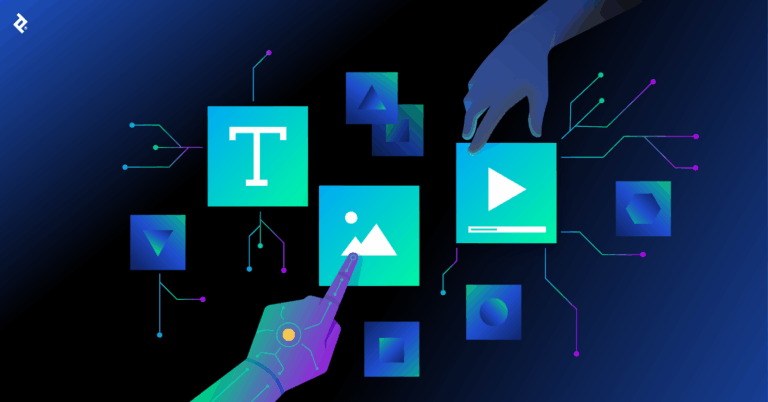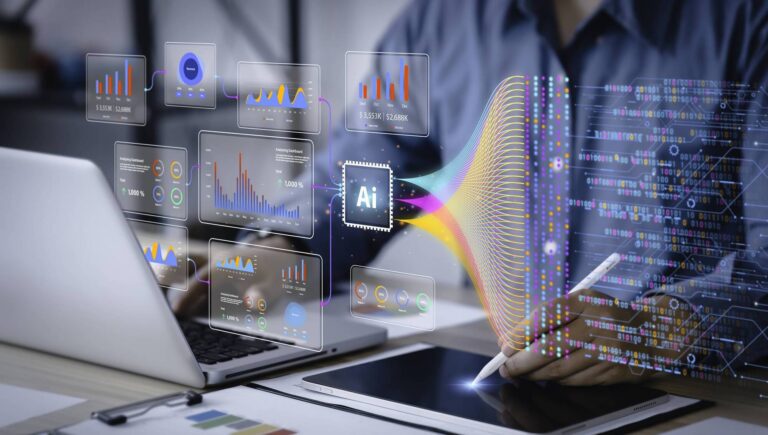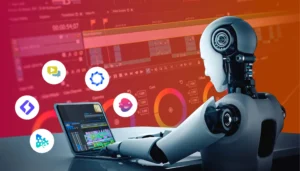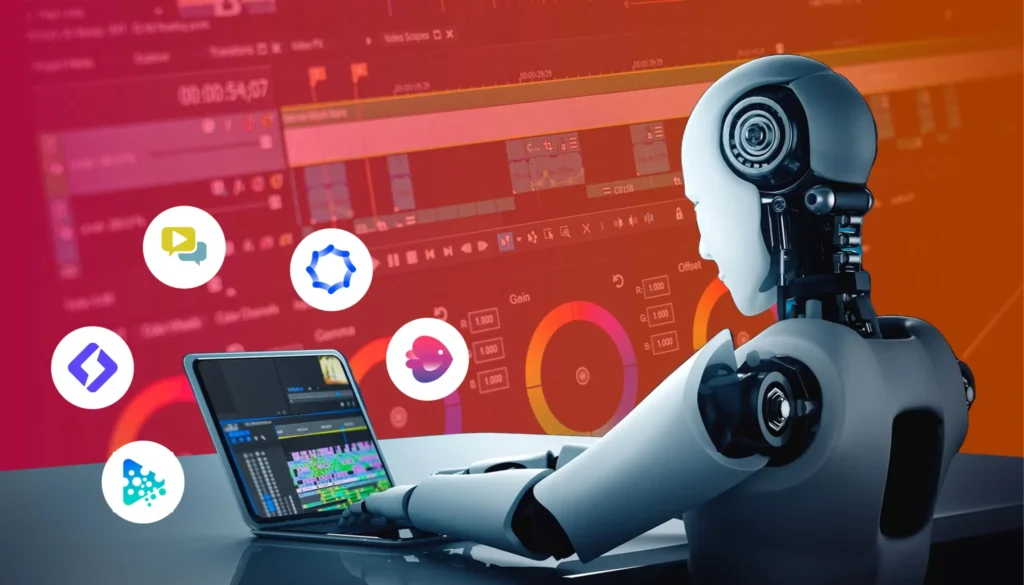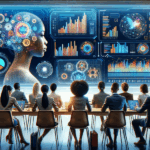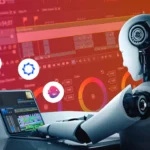Imagine a world in which teaching and learning are not a one-size-fits-all experience, but rather a journey that is tailored to the unique needs and aspirations of each student. Artificial Intelligence is making this a reality in education. AI is a major influence on education. It has changed the way that we learn and teach.
Table of Contents
What is AI?
AI in education is the use of artificial intelligence technologies to enhance teaching and learning. It can be different software or systems that are able to adapt to the learning styles and paces of each student, offer personalized learning experiences, help teachers with administrative tasks and grade students, and provide insights into their progress.
AI is important in education because of tools like educational apps, online tutoring, interactive games, and platforms that analyze data for better educational outcomes. Artificial intelligence’s role in education is to improve efficiency, create engaging content, and tailor it to the needs of each student.
It can also analyze large amounts of data and learn from the interactions. This allows it to provide unique insights into every student’s individual learning process and tailor their educational experience according to their needs and preferences.
Teachers’ Perspective on AI and Education
Artificial Intelligence is transforming traditional teaching methods and changing the way teachers teach. Take a look at the way the use of AI in the classroom is changing the role of the teacher:
1. Personalized Learning
It can offer a personalized experience for every student, along with an analysis of the student’s strengths and weaknesses, learning patterns, etc.
Artificial intelligence can also be used to help teachers customize the learning experience for each student.
2. Engaged in a variety of ways
AI-powered tools can also make learning more interactive, which will keep students interested. You can include different activities, such as games or simulations, to make learning more enjoyable for your students.
3. Customized Feedback
Teachers can use AI to give immediate, personalized feedback to their students. This will help them to understand and correct any mistakes they make.
AI can save teachers time by automating tasks that are normally done manually, such as preparing lesson plans, providing feedback, and interacting with students.
4. Automated Grading Systems
Teachers can simplify the process of grading students. AI can grade exams and assignments quickly and consistently. This allows teachers to focus on planning lessons and meeting the needs of individual students. Artificial intelligence is a great tool for education.
5. Task Automation
AI can automate administrative tasks, so teachers have more time for teaching.
AI can be used to streamline administrative tasks, such as scheduling, communication with parents, and attendance. This reduces the administrative burden placed on teachers.
6. Learning Gap Analysis
Teachers can quickly identify student learning gaps with the aid of AI tools. Teachers have access to detailed reports that provide insights into the learning journey of each student. These insights allow educators to tailor their teaching strategies so that they meet the needs of each student and ensure no one gets left behind.
AI can process large amounts of data more quickly and accurately, allowing for a more detailed and comprehensive gap analysis than would be possible manually.
7. AI in Exams
AI has many benefits, including automated grading and plagiarism detection. It can also be used to generate personalized feedback. Teachers can reduce administrative work, which allows them to devote more time to improving student engagement and instruction.
8. Smart Content
AI’s involvement in education is changing it by making the teaching materials interactive and personalized. AI can be used to adjust digital textbooks and modules online according to the learning pace of each student, increasing its importance in education.
These materials are also always updated, which keeps content current and in line with the latest standards. This is a crucial capability for the future of AI education as it allows teachers to deliver a dynamic, engaging learning experience that meets today’s digital native students.
9. Universal Access
Teachers can use AI to create a learning environment that is inclusive and gives every student the chance to succeed. It can also facilitate remote learning, which is becoming increasingly important to ensure that education continues without interruption.
10. Enhancing Teaching
Teachers can offer suggestions to improve their teaching methods, allowing them to continuously develop their skills.
Teachers can improve their teaching methods by integrating AI capabilities. They can also provide better support for students and manage their time effectively.
AI and Education: Implications for Students
AI is a rapidly changing and multifaceted technology that has a wide range of applications in the education sector. Here are a few key points that highlight its impact.
- Students with special needs can learn more easily using voice-to-text transcribers and personalized learning interfaces.
- Identifying the preferences and learning styles of each student is also possible.
- AI-powered apps and tools for language learning can provide personalized language learning experiences to students.
- AI systems are also able to detect learning difficulties or disabilities early by analysing student performance and interaction data. This allows for timely intervention.
Artificial intelligence’s main role in education is to offer a dynamic, evolving environment that improves learning, allowing it to be more efficient, personalized, and accessible.
What will the future of AI look like in education?
The future of AI education is a thrilling and fun adventure into the world of intelligent teaching and learning. AI tools can help create personalised learning experiences.
These tools can adapt to the learning styles of each student, ensuring that they all understand the lesson.
Teachers will also reap the benefits of AI. Teachers will be able to use tools that can help them with time-consuming tasks such as grading, creating lesson plans, or directly helping students.
AI will make teaching and learning easier, more efficient, and more enjoyable.
The conclusion of the article is
AI’s importance in education is not to be underestimated. AI will transform the way we learn and teach. It will make learning more engaging, accessible, and efficient for both teachers and students. Artificial intelligence is only just starting its journey in the education field, but it has immense potential.


